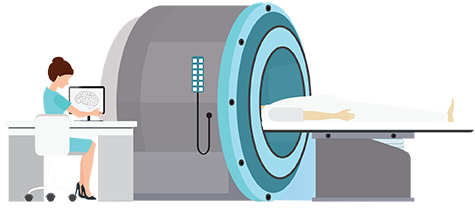

Radiology training starts with foundational courses in radiologic sciences and culminates in hands-on training and radiology externships. There is also training available for those who are already in the field and want to take their radiology training to the next level. At radiology-schools.com, we provide you with accurate and up to date information on radiology training options.
A solid foundation for your radiology training begins with an understanding of the the fundamentals of basic medical terminology and practices coupled with core curriculum in radiologic sciences. For a detailed look at typical radiology course work, take a look at our radiology courses page. Here is a sample of classes you will you will be taking as a radiology student:
Virtually all radiology programs include hands on training to allow you to apply classroom knowledge in the real world. We have reviewed several programs for you to determine the common practices and procedures you will get an opportunity to perform during this critical period of your radiology training. Here is list of what you can expect from this part of your radiology training:
Combining traditional education with radiology training in a realistic work environment will give you the confidence you need to step into a position and start your career immediately out of radiology school. Many schools have direct relationships with radiology employers who are eagerly seeking RT students to join their team. The radiology worker shortage has made it easier for students to make the transition into the working world much quicker.
The ARRT (American Registry of Radiologic Technologists) administers an exam that will certify you. Most states require certification through the ARRT. Most radiology certificates and degree programs will prepare you to successfully pass this exam. In fact, statistics show that over 90% of first time test takers pass the exam if they have received formal training and education. Most states require initial certification, then a re-certification every two years. You can learn more on our ARRT exam page.
Most radiologic technologists choose to specialize in a particular procedure or sub-category within the field of radiology. Becoming certified to perform specific procedures will make you a more desirable job candidate and may increase your radiology salary potential. Learn more about radiology specializations and available certificates and radiology degree options to further your career. Another popular avenue for continued training is the coveted Radiologist Assistant role, which comes with significantly higher salary levels and responsibility.Need additional radiology training information? Check out our radiology courses or radiology degrees page for further research.